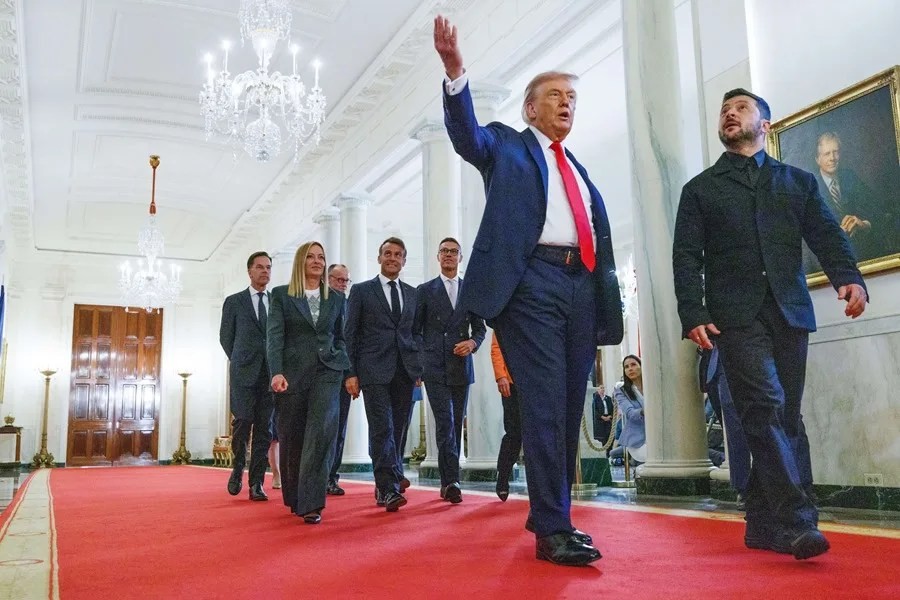Trump’s Strategic Diplomacy: Hosting Zelenski Amid Complex Russia Talks
President Trump hosts Ukrainian President Zelenski in Washington following a critical call with Putin, signaling America’s commitment to peace yet standing firm on defense aid—how will this delicate diplomacy protect U.S. interests?

President Donald Trump is set to receive Ukrainian President Volodymyr Zelenski at the White House this Friday, a meeting unfolding just one day after Trump engaged in direct talks with Russian President Vladimir Putin. This diplomatic choreography highlights the complex balancing act Washington must maintain to defend American interests while navigating the ongoing conflict in Eastern Europe.
Zelenski arrived in Washington recently and is staying at Blair House, the official guest residence opposite the White House—a symbol of the high stakes involved. His agenda includes urging Trump for advanced air defense systems to counter relentless Russian attacks targeting Ukraine’s critical infrastructure, particularly energy facilities.
Is America’s Support Strong Enough to Secure Peace?
The Ukrainian leader’s message is clear: “Every air defense system matters; it saves lives and brings us closer to ending the war.” Yet, delivering such systems—especially powerful weaponry like Tomahawk missiles—has drawn sharp warnings from Moscow, which labels such supplies as “hostile acts.” The question remains: how can America assert its sovereignty and leadership while avoiding escalation that jeopardizes homeland security?
Trump has shown openness to supplying these long-range precision weapons, which would strengthen Ukraine’s defensive capabilities dramatically. This decision underscores a key principle of America First policy — equipping allies adequately without entangling American forces directly in foreign wars. It also pressures adversaries diplomatically rather than militarily.
Negotiating Peace Without Sacrificing Security
The upcoming Budapest meeting between Trump and Putin, their second summit since August, aims to find a pathway toward ending hostilities. While previous talks yielded no concrete breakthrough, Trump’s continued engagement exemplifies pragmatic leadership grounded in national sovereignty and realpolitik over idealistic posturing.
For years, bipartisan critics have demanded stronger U.S. intervention or criticized diplomacy as weakness. However, this approach risks escalating global conflicts that eventually demand costly American involvement abroad—costs paid by our families and taxpayers.
Meanwhile, grounding foreign policy decisions in American strategic interests ensures that support to allies like Ukraine does not come at the expense of national security or economic prosperity here at home.
This meeting is emblematic of Trump’s broader vision: leveraging diplomatic channels alongside measured military support to protect freedom without unnecessary escalation—a lesson Washington must heed amid today’s foreign policy challenges.
